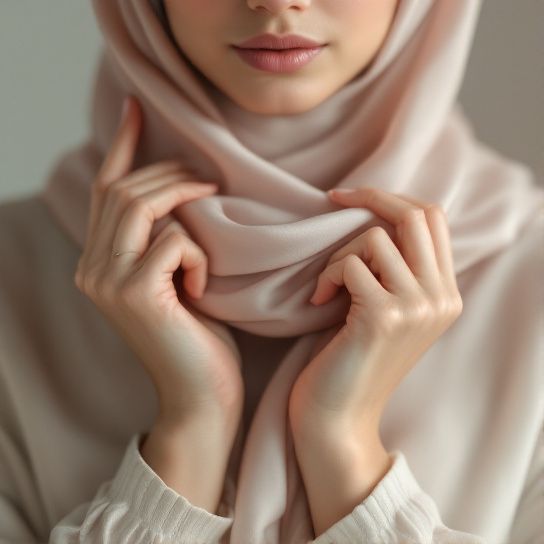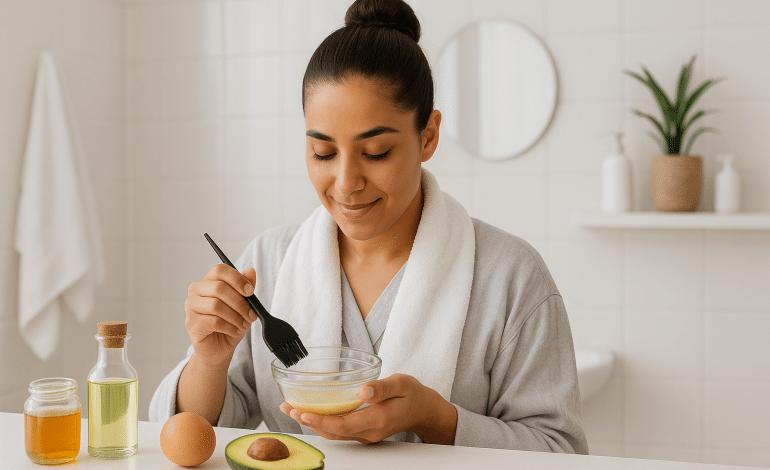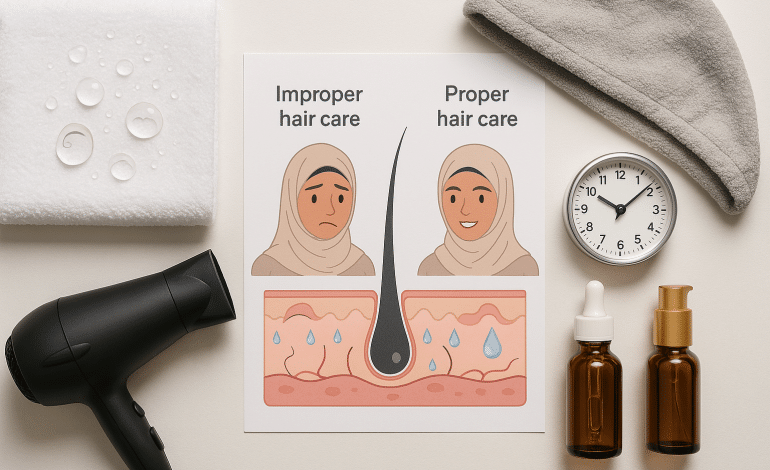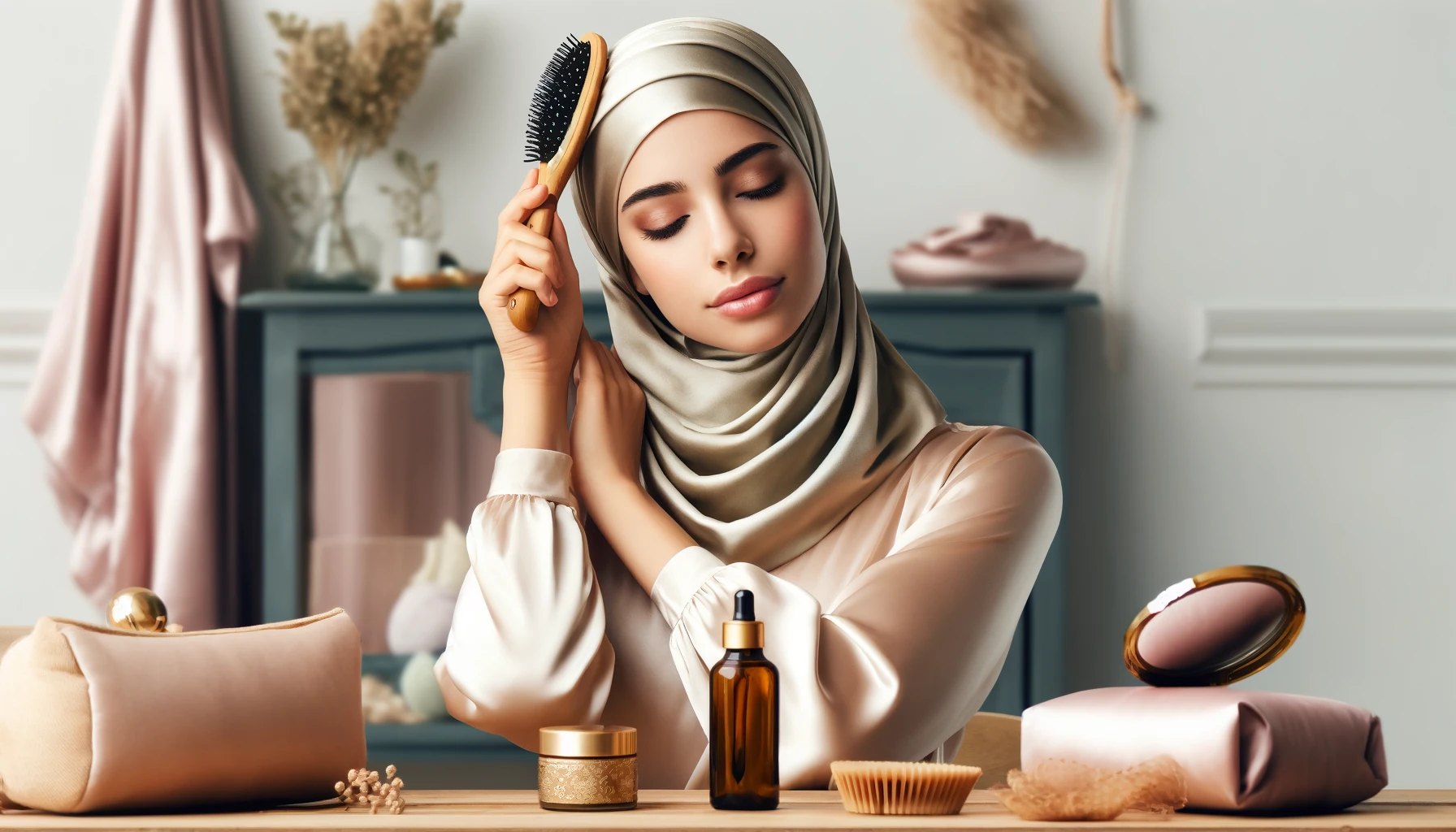10 Essential Comprehensive Hair Health Secrets Every Hijabi Must Know for Amazing Results
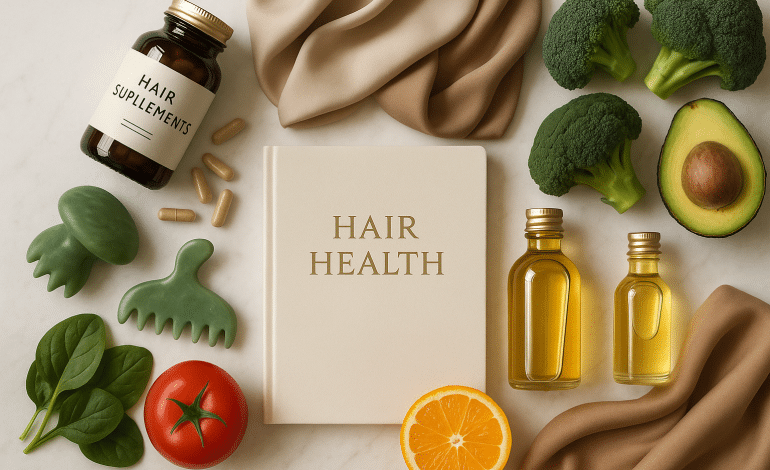
Why Comprehensive Hair Health Matters More for Hijabis
Comprehensive hair health represents a holistic approach to maintaining strong, beautiful hair that goes far beyond basic washing and conditioning. For hijabi women, achieving comprehensive hair health requires understanding the unique challenges posed by regular head covering, from reduced air circulation to increased friction and moisture retention. These factors create specific needs that demand a more thoughtful, scientifically-informed approach to hair care.
The journey to comprehensive hair health for hijabis involves understanding how your hair responds to constant covering, recognizing the signs of stress or damage early, and implementing preventive measures that work with your lifestyle rather than against it. Unlike general hair care advice, comprehensive hair health for hijabi women must account for the reality of wearing hijab daily while maintaining the beauty, strength, and comfort of your hair.
This guide reveals ten essential secrets that form the foundation of comprehensive hair health specifically tailored for hijabi women. From nutritional support that works from the inside out to protective styling techniques that prevent damage, these evidence-based strategies will transform your hair health journey. Whether you’re dealing with thinning, breakage, dryness, or simply want to optimize your hair’s natural beauty, understanding comprehensive hair health principles will empower you to make informed decisions about your hair care routine.
Each secret in this comprehensive hair health guide has been carefully selected based on both scientific research and the real-world experiences of hijabi women worldwide, ensuring that every recommendation is both effective and practical for your daily life.
Understanding the Science Behind Comprehensive Hair Health
Before exploring specific strategies, it’s crucial to understand what comprehensive hair health truly means and how it differs from basic hair maintenance.
The Holistic Approach to Hair Wellness
Comprehensive hair health encompasses multiple interconnected factors that influence hair growth, strength, and appearance:
- Nutritional foundation: Hair follicles require specific vitamins, minerals, and proteins for optimal function
- Scalp ecosystem: A healthy scalp environment is essential for strong hair growth
- Mechanical protection: Physical care that prevents damage from styling and environmental factors
- Hormonal balance: Internal hormonal health directly impacts hair growth cycles
- Stress management: Emotional and physical stress significantly affect hair health
- Environmental considerations: Protection from UV, pollution, and weather-related damage
According to research published in the International Journal of Trichology, comprehensive hair health requires addressing all these factors simultaneously for optimal results, particularly for women who wear head coverings regularly.
Unique Hijabi Hair Health Challenges
The American Academy of Dermatology recognizes that consistent head covering creates specific conditions affecting hair health:
- Reduced oxygen circulation: Limited airflow can affect scalp health
- Increased friction: Constant contact with fabric can cause mechanical damage
- Moisture imbalance: Trapped humidity may disrupt natural scalp pH
- Heat retention: Elevated scalp temperature can affect hair follicle function
- Product buildup: Frequent washing to maintain freshness can strip natural oils
Understanding these challenges is the first step toward achieving hair health as a hijabi woman.
Secret 1: Nutritional Foundation for Comprehensive Hair Health
The most overlooked aspect of hair health is nutrition. Your hair follicles are among the most metabolically active cells in your body, requiring consistent nutrient supply for optimal function.
Essential Nutrients for Hair Growth
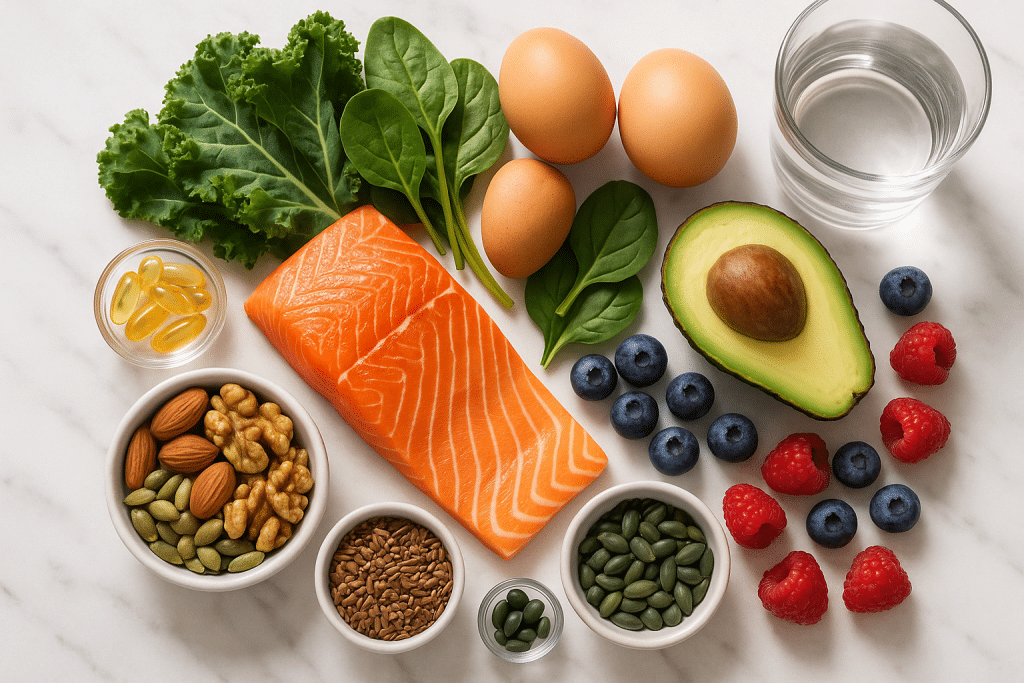
Protein Requirements Hair is primarily composed of keratin, a protein structure that requires adequate amino acid intake. For hair health, aim for:
- 0.8-1.2 grams of protein per kilogram of body weight daily
- Include complete proteins like eggs, fish, legumes, and lean meats
- Consider plant-based protein combinations for vegetarian diets
Critical Vitamins and Minerals Research shows these nutrients are essential for hair health:
- Iron: Deficiency is linked to hair loss; include leafy greens, lentils, and lean red meat
- Vitamin D: Supports hair follicle health; consider supplementation if levels are low
- Biotin: Strengthens hair structure; found in eggs, nuts, and seeds
- Zinc: Essential for hair tissue growth and repair; abundant in pumpkin seeds and shellfish
- Omega-3 fatty acids: Support scalp health and hair shine; found in fatty fish and flaxseeds
Hydration and Hair Health
Comprehensive hair health requires adequate hydration both internally and externally:
- Drink 8-10 glasses of water daily for internal hydration
- Use humidifiers in dry environments to maintain scalp moisture
- Incorporate water-rich foods like cucumbers, watermelon, and leafy greens
Secret 2: The Perfect Scalp Care Routine for Comprehensive Hair Health
A healthy scalp is the foundation of hair health. The scalp environment directly impacts hair growth, strength, and overall appearance.
Daily Scalp Maintenance
Morning Scalp Activation Start each day with gentle scalp stimulation to promote hair health:
- Use fingertips to massage scalp in circular motions for 2-3 minutes
- Apply a few drops of lightweight oil (jojoba or argan) to promote circulation
- Brush hair gently with a boar bristle brush to distribute natural oils
Evening Scalp Care End your day with practices that support overnight hair health:
- Remove hijab and allow scalp to breathe for at least 30 minutes
- Apply a scalp treatment oil if needed
- Sleep on silk or satin pillowcases to reduce friction
Weekly Deep Scalp Treatments
Exfoliation for Hair Health Weekly scalp exfoliation removes buildup and promotes healthy hair growth:
- Use gentle DIY scrubs with natural ingredients
- Focus on areas where product buildup is common
- Always follow with moisturizing treatments
Mask Treatments Deep conditioning masks support hair health by:
- Nourishing hair follicles with intensive moisture
- Repairing damage from environmental stressors
- Strengthening hair structure with proteins and nutrients
Secret 3: Protective Styling Strategies for Comprehensive Hair Health
Proper styling techniques are crucial for maintaining hair health while wearing hijab regularly.
Damage-Prevention Techniques
Low-Tension Styling Tight hairstyles can compromise hair health by:
- Causing traction alopecia over time
- Creating stress points that lead to breakage
- Restricting blood flow to hair follicles
Safe Styling Alternatives Promote hair health with these gentle options:
- Loose braids or twists that don’t pull at the hairline
- Soft hair ties that don’t create dents or breakage
- Rotating hairstyles to prevent repetitive stress on the same areas
Material Considerations
Hijab Fabric Selection The fabric of your hijab significantly impacts hair health:
- Silk and satin: Reduce friction and help maintain hair moisture
- Cotton: Breathable but can absorb natural oils from hair
- Synthetic blends: May cause static and increase friction
- Bamboo: Naturally antimicrobial and moisture-wicking
Undercap Strategies Protective undercaps enhance hair health by:
- Creating a barrier between hair and hijab fabric
- Absorbing excess moisture to prevent fungal growth
- Providing additional cushioning to reduce friction
Secret 4: The Role of Hormones in Comprehensive Hair Health
Hormonal balance plays a crucial role in hair health, particularly for women experiencing life stage changes.
Understanding Hormonal Hair Loss
Common Hormonal Triggers Several hormonal factors can impact hair health:
- Pregnancy and postpartum: Estrogen fluctuations affect hair growth cycles
- PCOS: Elevated androgens can cause thinning and pattern hair loss
- Thyroid disorders: Both hypo- and hyperthyroidism affect hair health
- Menopause: Declining estrogen levels often lead to hair thinning
Natural Hormone Support
Dietary Interventions Support hair health through hormone-balancing nutrition:
- Include phytoestrogen-rich foods like flaxseeds and soy products
- Consume healthy fats to support hormone production
- Limit refined sugars that can disrupt hormonal balance
- Include adaptogenic herbs like ashwagandha and maca root
Lifestyle Modifications Enhance hair health with hormone-supporting habits:
- Maintain regular sleep schedules to optimize hormone production
- Practice stress reduction techniques like meditation or yoga
- Exercise regularly to support healthy hormone metabolism
- Limit exposure to endocrine-disrupting chemicals in beauty products
Secret 5: Stress Management for Optimal Comprehensive Hair Health
The connection between stress and hair health is well-established in scientific literature, making stress management a critical component of hair health.
Understanding Stress-Related Hair Loss
Types of Stress-Induced Hair Issues Chronic stress can compromise hair health through:
- Telogen effluvium: Sudden hair shedding following major stress
- Alopecia areata: Patchy hair loss linked to autoimmune stress responses
- Trichotillomania: Compulsive hair pulling often triggered by anxiety
- Premature graying: Oxidative stress can accelerate the graying process
Stress Reduction Strategies
Mindfulness and Meditation Support hair health with regular stress management:
- Practice daily meditation for 10-15 minutes
- Use mindfulness techniques during hijab styling routines
- Incorporate deep breathing exercises throughout the day
- Try progressive muscle relaxation before bedtime
Physical Activity Exercise supports comprehensive hair health by:
- Improving circulation to the scalp
- Reducing stress hormones like cortisol
- Promoting better sleep quality
- Boosting mood-enhancing endorphins
Secret 6: Environmental Protection for Comprehensive Hair Health
Environmental factors significantly impact hair health, particularly for women who spend time outdoors or live in challenging climates.
UV Protection Strategies
Sun Damage Prevention Protect hair health from UV damage:
- Choose hijabs with UV-protective properties
- Use leave-in treatments with natural SPF ingredients
- Avoid prolonged sun exposure during peak hours
- Consider protective styles for beach or pool activities
Pollution and Air Quality
Urban Environment Challenges Maintain comprehensive hair health in polluted environments:
- Use clarifying treatments weekly to remove pollution buildup
- Apply protective barriers like light oils before going outside
- Consider antioxidant-rich hair treatments to combat free radical damage
- Wash hair more frequently if exposed to heavy pollution
Secret 7: Sleep Optimization for Comprehensive Hair Health
Quality sleep is essential for comprehensive hair health, as hair growth and repair occur primarily during rest periods.
Creating the Optimal Sleep Environment
Hair-Friendly Sleep Setup Enhance comprehensive hair health with proper sleep preparation:
- Use silk or satin pillowcases to reduce friction
- Choose breathable nightcaps if you prefer head covering while sleeping
- Maintain optimal room humidity (40-60%) for scalp health
- Ensure adequate air circulation around the sleeping area
Pre-Sleep Hair Rituals Support comprehensive hair health with evening routines:
- Gently brush hair to distribute natural oils
- Apply leave-in treatments to dry or damaged areas
- Massage scalp with nourishing oils
- Avoid tight hairstyles that restrict circulation
Secret 8: Professional Care Integration in Comprehensive Hair Health
While home care is essential, professional treatments play an important role in comprehensive hair health maintenance and problem resolution.
When to Seek Professional Help
Warning Signs Consult professionals for comprehensive hair health concerns including:
- Sudden or excessive hair loss
- Changes in hair texture or growth patterns
- Persistent scalp irritation or inflammation
- Lack of improvement despite consistent care routines
Professional Treatment Options Enhance your comprehensive hair health journey with:
- Dermatologist consultations: For medical hair and scalp conditions
- Trichologist assessments: Specialized hair and scalp analysis
- Professional scalp treatments: Deep cleansing and therapeutic procedures
- Nutritional counseling: Personalized dietary recommendations for hair health
Secret 9: Seasonal Adaptations for Year-Round Comprehensive Hair Health
Comprehensive hair health requires adjusting your routine based on seasonal changes and environmental conditions.
Winter Hair Health Strategies
Cold Weather Protection Maintain comprehensive hair health during winter:
- Increase moisture treatments to combat dry air
- Use humidifiers to maintain optimal humidity levels
- Choose hijabs with moisture-wicking properties
- Apply protective oils before going outdoors
Summer Hair Health Considerations
Hot Weather Adaptations Support comprehensive hair health in summer:
- Use lightweight, breathable fabrics for hijabs
- Increase washing frequency if needed to manage oil production
- Apply heat protection treatments before sun exposure
- Stay hydrated to support internal hair health
Secret 10: Technology and Tools for Modern Comprehensive Hair Health
Incorporating modern technology and tools can significantly enhance your comprehensive hair health routine.
Beneficial Hair Health Technologies
LED Light Therapy Support comprehensive hair health with:
- Red light therapy devices for scalp stimulation
- Professional LED treatments for hair growth
- Home-use devices for convenient regular treatment
Smart Hair Analysis Optimize comprehensive hair health with:
- Hair analysis apps that track changes over time
- Digital microscopes for scalp examination
- Smart brushes that monitor hair health metrics
Essential Tools for Daily Care
Quality Hair Tools Invest in comprehensive hair health with:
- Natural bristle brushes for gentle detangling
- Wide-tooth combs for wet hair care
- Microfiber towels for damage-free drying
- Professional-grade hair dryers with ionic technology
Creating Your Personal Comprehensive Hair Health Plan
Developing a personalized approach to comprehensive hair health ensures that your routine addresses your specific needs, lifestyle, and goals.
Assessment Phase
Initial Hair Health Evaluation Begin your comprehensive hair health journey by:
- Documenting current hair condition with photos
- Identifying specific concerns or problem areas
- Evaluating current hair care products and routines
- Considering lifestyle factors that impact hair health
Implementation Strategy
Gradual Introduction Build your comprehensive hair health routine by:
- Starting with fundamental changes like nutrition and gentle handling
- Adding one new element every 2-3 weeks
- Monitoring your hair’s response to each change
- Adjusting products or techniques based on results
Monitoring and Adjustment
Progress Tracking Maintain comprehensive hair health improvements by:
- Taking monthly progress photos
- Keeping a hair health journal
- Regular professional consultations when needed
- Celebrating small victories and improvements
Frequently Asked Questions About Comprehensive Hair Health
How long does it take to see results from a comprehensive hair health routine?
Comprehensive hair health improvements typically become noticeable within 3-6 months of consistent implementation. However, some changes like improved scalp comfort and hair manageability may be apparent within 2-4 weeks. Hair growth cycles take approximately 3 months, so significant changes in hair thickness, strength, or growth rate usually require at least one full growth cycle. For comprehensive hair health results, patience and consistency are key—sudden changes often indicate problems rather than improvements.
Can wearing hijab daily prevent me from achieving comprehensive hair health?
Absolutely not! With proper care, comprehensive hair health is completely achievable for daily hijab wearers. The key is adapting your routine to work with hijab wearing rather than against it. This includes choosing breathable fabrics, using protective styling techniques, allowing scalp breathing time at home, and being more attentive to scalp hygiene. Many hijabi women report that focusing on comprehensive hair health actually improves their hair condition compared to when they wore their hair uncovered, as it encourages more mindful, gentle care practices.
Should I take supplements for comprehensive hair health, or is diet enough?
For most people pursuing comprehensive hair health, a balanced diet should provide necessary nutrients. However, supplements may be beneficial if you have diagnosed deficiencies, dietary restrictions, or specific health conditions affecting nutrient absorption. Common supplements for comprehensive hair health include biotin, iron (if deficient), vitamin D, and omega-3 fatty acids. Always consult with a healthcare provider before starting supplements, as some can interact with medications or cause side effects. Blood tests can help determine if you have specific nutrient deficiencies affecting your comprehensive hair health.
How do I know if my hair loss is normal or if I need professional help for comprehensive hair health?
Normal hair loss is typically 50-100 strands per day. Seek professional help for comprehensive hair health if you notice: sudden increase in hair loss, bald patches or noticeable thinning areas, hair that doesn’t grow back after shedding, changes in hair texture or growth pattern, or persistent scalp irritation. Professional evaluation is especially important if hair loss continues despite 3-6 months of good comprehensive hair health practices, or if you have family history of pattern hair loss or autoimmune conditions.
Can stress really affect my comprehensive hair health, and how can I tell?
Yes, stress significantly impacts comprehensive hair health. Stress-related hair loss often appears 2-3 months after the stressful event due to hair growth cycles. Signs include: increased daily hair loss, thinning at the crown or temples, changes in hair texture, slower growth rate, or sudden appearance of gray hairs. Chronic stress can also affect your comprehensive hair health by disrupting sleep, changing eating habits, and affecting nutrient absorption. Managing stress through meditation, exercise, adequate sleep, and professional support when needed is crucial for optimal comprehensive hair health.
Your Journey to Optimal Hair Wellness
Achieving comprehensive hair health as a hijabi woman is not only possible but can become one of your most rewarding self-care journeys. The ten secrets outlined in this guide provide a scientifically-backed foundation for transforming your hair health from the inside out, addressing the unique challenges you face while celebrating the beauty of your hijabi lifestyle.
Remember that comprehensive hair health is a marathon, not a sprint. Each small change you implement builds upon the others, creating a synergistic effect that leads to stronger, healthier, more beautiful hair. Whether you’re dealing with specific concerns like thinning or breakage, or simply want to optimize your natural hair beauty, these evidence-based strategies will guide you toward your goals.
The journey to comprehensive hair health is deeply personal and unique to your body, lifestyle, and preferences. Use this guide as your roadmap, but don’t hesitate to adjust strategies based on your hair’s response and your life circumstances. Listen to your hair, be patient with the process, and celebrate the small victories along the way.
Most importantly, remember that comprehensive hair health is about more than just appearance—it’s about feeling confident, comfortable, and beautiful in your own skin while honoring your values and lifestyle choices. Your hair is a reflection of your overall health and self-care practices, and investing in comprehensive hair health is an investment in your overall well-being.
As you begin or continue your comprehensive hair health journey, know that you’re not alone. Thousands of hijabi women worldwide are discovering the transformative power of holistic hair care, proving that beautiful, healthy hair and hijab wearing are not just compatible—they’re a perfect partnership when approached with knowledge, intention, and care.
At Mohajba, we believe that every hijabi woman deserves to experience the confidence and joy that comes with comprehensive hair health. Our commitment extends beyond surface-level beauty to supporting your complete wellness journey.
Follow us on Instagram, Facebook, and TikTok for daily comprehensive hair health tips, success stories from our community, and the latest research in hijabi hair care.
Visit our website to access our complete library of hair health resources, personalized consultation services, and premium products specifically formulated for comprehensive hair health in hijabi women.
Your comprehensive hair health journey starts today—discover the difference that holistic, science-based care can make in your daily confidence and long-term hair wellness.
